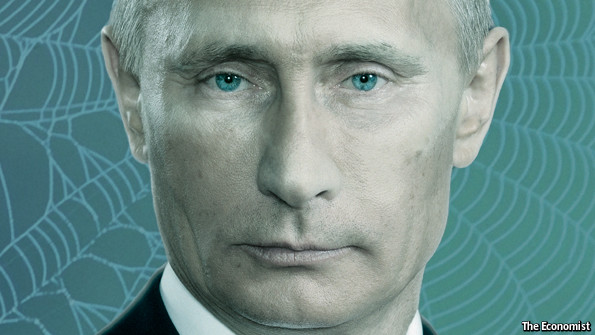Palestine Makes You Dumb
Of all the inane things that have been said about the war between Israel and Hamas, surely one dishonorable mention belongs to comments made over the weekend by Benjamin J. Rhodes, deputy national security adviser for strategic communications.
Interviewed by CNN's Candy Crowley, Mr. Rhodes offered the now-standard administration line that Israel has a right to defend itself but needs to do more to avoid civilian casualties. Ms. Crowley interjected that, according to Israeli Prime Minister Benjamin Netanyahu, the Jewish state was already doing everything it could to avoid such casualties.
"I think you can always do more," Mr. Rhodes replied. "The U.S. military does that in Afghanistan."
How inapt is this comparison? The list of Afghan civilians accidentally killed by U.S. or NATO strikes is not short. Little of the fighting in Afghanistan took place in the dense urban environments that make the current warfare in Gaza so difficult. The last time the U.S. fought a Gaza-style battle—in Fallujah in 2004—some 800 civilians perished and at least 9,000 homes were destroyed. This is not an indictment of U.S. conduct in Fallujah but an acknowledgment of the grim reality of city combat.
Oh, and by the way, American towns and cities were not being rocketed from above or tunneled under from below as the Fallujah campaign was under way.
Maybe Mr. Rhodes knows all this and was merely caught out mouthing the sorts of platitudes that are considered diplomatically de rigueur when it comes to the Palestinians. Or maybe he was just another victim of what I call the Palestine Effect: The abrupt and often total collapse of logical reasoning, skeptical intelligence and ordinary moral judgment whenever the subject of Palestinian suffering arises.
Consider the media obsession with the body count. According to a daily tally in the New York Times, NYT +2.19% as of July 27 the war in Gaza had claimed 1,023 Palestinian lives as against 46 Israelis. How does the Times keep such an accurate count of Palestinian deaths? A footnote discloses "Palestinian death tallies are provided by the Palestinian Health Ministry and the United Nations Office for the Coordination of Humanitarian Affairs."
OK. So who runs the Palestinian Health Ministry in Gaza? Hamas does. As for the U.N., it gets its data mainly from two Palestinian agitprop NGOs, one of which, the Palestinian Center for Human Rights, offers the remarkably precise statistic that, as of July 27, exactly 82% of deaths in Gaza have been civilians. Curiously, during the 2008-09 Gaza war, the center also reported an 82% civilian casualty rate.
When minutely exact statistics are provided in chaotic circumstances, it suggests the statistics are garbage. When a news organization relies—without clarification—on data provided by a bureaucratic organ of a terrorist organization, there's something wrong there, too.
But let's assume for argument's sake that the numbers are accurate. Does this mean the Palestinians are the chief victims, and Israelis the main victimizers, in the conflict? By this dull logic we might want to rethink the moral equities of World War II, in which over one million German civilians perished at Allied hands compared with just 67,000 British and 12,000 American civilians.
The real utility of the body count is that it offers reporters and commentators who cite it the chance to ascribe implicit blame to Israel while evading questions about ultimate responsibility for the killing. Questions such as: Why is Hamas hiding rockets in U.N.-run schools, as acknowledged by the U.N. itself? What does it mean that Hamas has turned Gaza's central hospital into "a de facto headquarters," as reported by the Washington Post? And why does Hamas keep rejecting, or violating, cease-fires agreed to by Israel?
A reasonable person might conclude from this that Hamas, which started the war, wants it to continue, and that it relies on Israel's moral scruples not to destroy civilian sites that it cynically uses for military purposes. But then there is the Palestine Effect. By this reasoning, Hamas only initiated the fighting because Israel refused to countenance the creation of a Palestinian coalition that included Hamas, and because Israel further objected to helping pay the salaries of Hamas's civil servants in Gaza.
Let's get this one straight. Israel is culpable because (a) it won't accept a Palestinian government that includes a terrorist organization sworn to the Jewish state's destruction; (b) it won't help that organization out of its financial jam; and (c) it won't ease a quasi-blockade—jointly imposed with Egypt—on a territory whose central economic activity appears to be building rocket factories and pouring imported concrete into terrorist tunnels.
This is either bald moral idiocy or thinly veiled bigotry. It mistakes effect for cause, treats self-respect as arrogance and self-defense as aggression, and makes demands of the Jewish state that would be dismissed out of hand anywhere else. To argue the Palestinian side, in this war, is to make the case for barbarism. It is to erase, in the name of humanitarianism, the moral distinctions from which the concept of humanity arises.
Typically, the Obama administration is hedging its bets. The Palestine Effect claims another victim.
Write to bstephens@wsj.com
Stuart Don Levy



